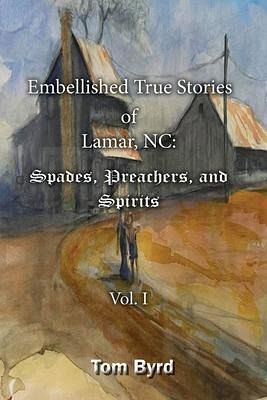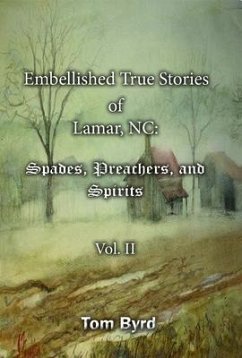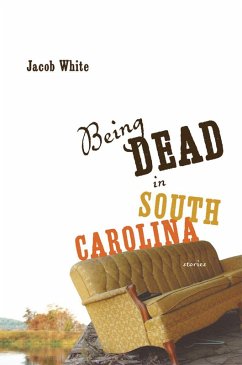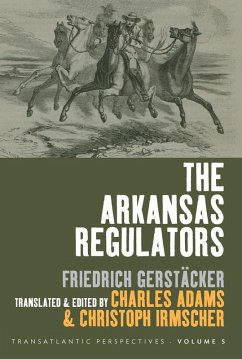
Embellished True Stories of Lamar, NC (eBook, ePUB)
Spades, Preachers, and Spirits - Vol. 1
Redaktion: Scism, Bruce

PAYBACK Punkte
4 °P sammeln!
Vol I. of a two volume collection of short stories reflecting the life, culture, and goings-on of the residents of Lamar, NC., home of the author, Tom Byrd.Lamar is itself a fictional town in rural, central North Carolina. Tom Byrd was born and raised in this part of the state but left the farms for life in academia. He returned to his home place when his beloved wife passed too early in life and spent a considerable number of years writing stories depicting one slice of life in that region.Lamar, NC, a community by consensus of its residents, but is not large enough to warrant a road sign say...
Vol I. of a two volume collection of short stories reflecting the life, culture, and goings-on of the residents of Lamar, NC., home of the author, Tom Byrd.
Lamar is itself a fictional town in rural, central North Carolina. Tom Byrd was born and raised in this part of the state but left the farms for life in academia. He returned to his home place when his beloved wife passed too early in life and spent a considerable number of years writing stories depicting one slice of life in that region.
Lamar, NC, a community by consensus of its residents, but is not large enough to warrant a road sign saying "Lamar." It is known legally as Lamar because it has a small post office, with a sign that reads 'Lamar' on the entrance door, and so "Lamar" can be defined geographically as being composed of the area where the Lamar post office delivers mail by rural routes.
At the end of World War II, there were not many paved roads in the area; only the principal north-south highway was paved.
Between 1949 and 1953, a North Carolina governor named Kerr Scott instituted a road paving program that helped to make Lamar a thriving community, so that over the next thirty years, the area grew large enough to support not only the small post office, but three or four country convenience stores, two of which also sold gasoline.
The stories are reflections and reminiscences of a cast of recurring characters gathered several times each week to play spades at the local, country general store. Their tales, tall and otherwise, are re-told by the author with some considerable embellishments, to make a more interesting story as he tells it. Across the two volume collection of stories, the reader has an appreciated opportunity to get to know a number of the characters as they appear throughout many of the stories, the eccentricities of their religious beliefs and practices, Saturday night spirits (engaged by some quite liberally throughout the other six days of the week), and idiosyncrasies and individual frailties of the cast of characters.
Lamar is itself a fictional town in rural, central North Carolina. Tom Byrd was born and raised in this part of the state but left the farms for life in academia. He returned to his home place when his beloved wife passed too early in life and spent a considerable number of years writing stories depicting one slice of life in that region.
Lamar, NC, a community by consensus of its residents, but is not large enough to warrant a road sign saying "Lamar." It is known legally as Lamar because it has a small post office, with a sign that reads 'Lamar' on the entrance door, and so "Lamar" can be defined geographically as being composed of the area where the Lamar post office delivers mail by rural routes.
At the end of World War II, there were not many paved roads in the area; only the principal north-south highway was paved.
Between 1949 and 1953, a North Carolina governor named Kerr Scott instituted a road paving program that helped to make Lamar a thriving community, so that over the next thirty years, the area grew large enough to support not only the small post office, but three or four country convenience stores, two of which also sold gasoline.
The stories are reflections and reminiscences of a cast of recurring characters gathered several times each week to play spades at the local, country general store. Their tales, tall and otherwise, are re-told by the author with some considerable embellishments, to make a more interesting story as he tells it. Across the two volume collection of stories, the reader has an appreciated opportunity to get to know a number of the characters as they appear throughout many of the stories, the eccentricities of their religious beliefs and practices, Saturday night spirits (engaged by some quite liberally throughout the other six days of the week), and idiosyncrasies and individual frailties of the cast of characters.
Dieser Download kann aus rechtlichen Gründen nur mit Rechnungsadresse in A, D ausgeliefert werden.













